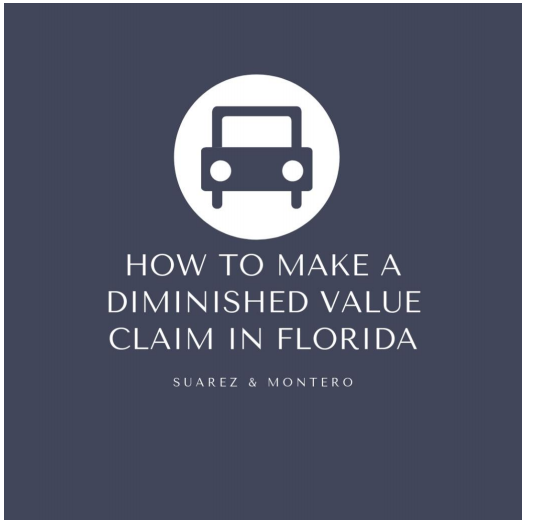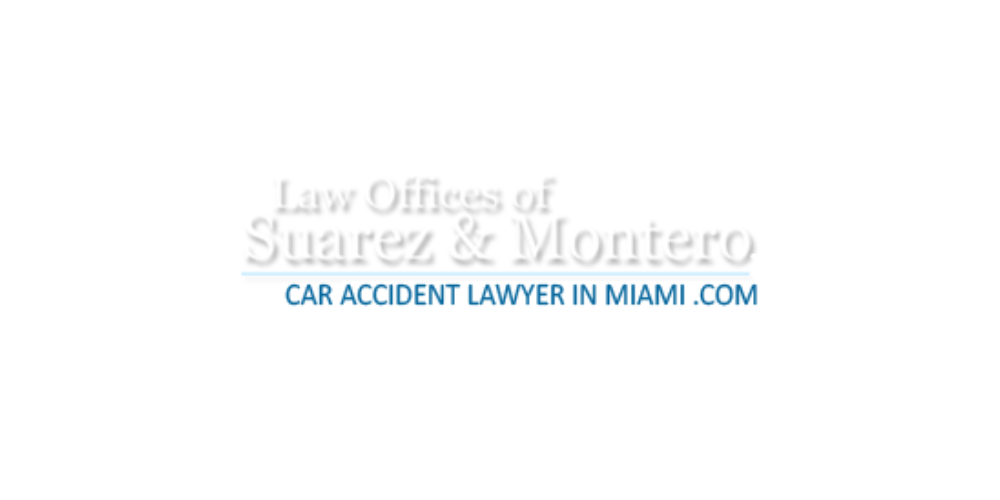
How to Make a Diminished Value Claim in Florida
In Florida, most drivers understand the importance of carrying an adequate amount of auto insurance. All Florida drivers must carry two types of insurance—Personal Injury Protection (PIP) liability insurance and Property Damage Liability (PDL) insurance. Sadly, there are some situations in which insurance won’t be enough to cover your losses after a crash. For example, imagine you are involved in an accident a few months after purchasing a brand-new car. Everyone knows that once your vehicle is involved in an accident, it ruins the potential resale value of the car going forward. Even if the repairs are performed to your vehicle are done properly, most consumers will not pay the same price for a wrecked, then repaired vehicle, as they will for a vehicle with no accident history. Simply, even if your car still looks new, if it was involved in a crash, it can take thousands of dollars off of the resale value. In these cases, a diminished value claim can help drivers collect the difference between the original purchase price of their vehicle and the price of the vehicle after an accident.
Diminished Value Coverage in Auto Insurance Policies: Most motor vehicle collision policies may stipulate that the insurer’s liability shall not exceed the cost of repair or replacement with materials of like kind and quality or that the insurer retains the option to make the repairs and then return the vehicle to the insured in as good condition as it was before the accident. Where, under an automobile insurance policy providing for collision protection, the insurer elects to have the damaged vehicle repaired, that election creates a new contract under which the insurer is bound to restore the vehicle within a reasonable time. The inherent diminished value of the insured’s adequately repaired car is not a covered loss under the collision coverage in an automobile policy when the policy provides for the repair or replacement of a damaged vehicle and is silent as to the coverage of any diminished value. A provision giving the insurer the right, in the event of a loss, to repair, replace, or rebuild the damaged property may be included in an auto collision policy. Moreover, when the insurer makes its election to repair, that election is binding upon the insured and creates a new contract; where the insurer breaches this new contract to repair, it becomes liable for the damages proximately caused by this breach despite the policy limits. Thus, for example, if an insurer elects to repair a vehicle and then fails to do so, the insured may recover damages for loss of use. However, an automobile insurer’s obligation to repair the vehicle with “like kind and quality” requires the restoration of the property to good condition with parts, equipment, and workmanship of the same essential character, nature, and degree of excellence that existed on the vehicle prior to the accident; it does not require the insurer to return the vehicle to its pre-accident market value. Furthermore, the insurer’s obligation to repair or replace with other components “of like kind and quality” or compensate the insured in money for the cost of the repair or replacement does not obligate the insurer to both complete a quality, first-rate repair of the vehicle and pay money to the insured for any diminution in value that remains because the vehicle was involved in a collision in the first place; the methods for compensation are set forth in the alternative rather than being cumulative. Where the proposed repairs will not restore a vehicle to substantially the value and condition existing prior to the accident, and the insurer seeks a release of liability for any diminution in the value of the vehicle, the insured may justifiably refuse the proposed repairs and release and is entitled to damages for the loss of the vehicle. However, an insurer that provides collision coverage under a policy giving the insurer the option to repair or replace a damaged vehicle is not liable for more than the amount of a repair appraisal where it has elected to repair rather than replace the insured’s automobile, and the insured refuses to allow repairs and instead sells the vehicle for salvage where the insurer has agreed to pay for any overlooked damages and has not sought to terminate its liability by requiring the insured to sign a release or other document prior to effecting repairs.
How to Prove Your Diminished Value Claim: Florida is a diminished value state, which means you may be entitled to the diminished value of your vehicle after an auto accident. Under Florida law, a vehicle owner can pursue a claim for diminution from the negligent party who caused the accident, typically by filing directly with their insurance company. Diminished Value (“DV”) is the loss in market value that occurs when a vehicle is wrecked and repaired. To file a diminished value car insurance claim, you must provide clear proof of the diminution and its dollar value. To make your claim to the insurance company, or if you bring your claim in court, you need to be able to justify what you’re claiming for diminished value. That means gathering evidence of your vehicle’s value both before and after the accident. It’s important to have your car inspected as soon as you can after the accident. The statute of limitation on diminished value claims in Florida is four (4) years. Keep in mind that if you were at fault in a car accident or if the damage to your vehicle was caused by something other than a car crash, you will not be able to file a diminished value claim with your auto insurance company.
If you or a loved one were injured in a motor vehicle accident, you may have a legal right to recover significant compensation for your injuries. The Law Offices of Suarez & Montero Car Accident Lawyers represents accident victims injured in various types of accidents. Our skillful attorneys are genuinely committed to our clients. We will fight to make sure that you get the maximum amount of compensation owed to you. Let us help you get the medical care you need and fight to make sure you are compensated for your injuries!
We serve clients throughout Florida including those in the following areas:
Miami-Dade: Aventura, Coral Gables, Doral, Fontainebleau, Hialeah, Homestead, Kendall, Miami, Miami Beach, Miami Lakes, North Miami, Tamiami, and Westchester.
Broward: Fort Lauderdale, Hallandale Beach, Hollywood, Pembroke Pines, and Weston; and Palm Beach County including Boca Raton, Lake Worth, and West Palm Beach.





